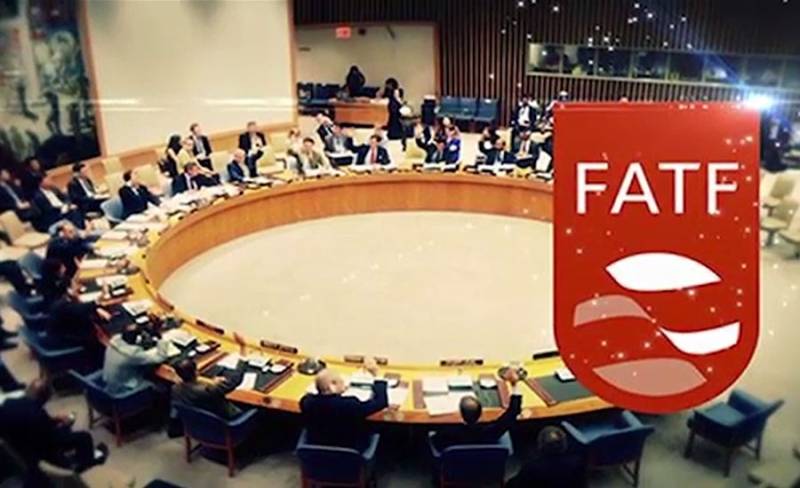Pakistan to 'remain' on FATF grey list
Decision falls short of country's expectations but is not a failure either

Stay tuned with 24 News HD Android App

Pakistan "will remain" in the grey list of the Financial Action Task Force (FATF), the global watchdog has reportedly decided in its ongoing weekly meeting in the French capital Paris.
The strong support from Turkey and Malaysia helped Pakistan win praise for tightening its financial system and taking other measures to curb terror financing and money laundering, but the moot on Tuesday decided to keep the country on the 'grey list' while urging it to ensure compliance with the remaining points of FATF action plan.
Earlier, Pakistan delegation led by Federal Minister for Economic Affairs Hammad Azhar had submitted the report that showed compliance of at least 14 points out of the total 27 points of the action plan.
Earlier, Islamabad had expressed the optimism that its action would convince the watchdog to take it off the grey list - which entails certain financial restrictions and make it difficult for the country to secure loans from international lenders like IMF and World Bank.
Catastrophe avoided
The development is not a disappointment for the country however as it faced a fierce vilifying campaign by India, which sought the international body to further penalise Islamabad by placing it on its blacklist - a list that contains such hard-pressed states as Iran and North Korea.
Had Pakistan slid to the blacklist, it would have to face isolation from the international banking system and stricter checks on transactions involving the country would have been placed.
Paris meeting
The plenary meeting of FATF is being attended by more than 800 representatives from 205 countries and jurisdictions around the world including the International Monetary Fund, the United Nations, the World Bank, and other organisations.
The International Co-operation Review Group (ICRG), which is a part of FATF, was to evaluate Pakistan's performance on implementation of financial checks and see if the country has taken sufficient steps to fight terrorism financing and money laundering.
The Pakistani team submitted its compliance report for review to the meeting, showing total compliance of at least 14 points out of the 27-point Action Plan. Pakistan officials claimed the report also showed partial compliance with another 11 points. They said there were two points to which the country could not comply at all.
The meeting appreciated the performance but kept the country on the grey list, asking it to further tighten its laws and hold organizations and individuals behind money laundering and terror financing accountable.
Steps taken by Pakistan
The global watchdog had placed Pakistan on the grey list in 2018.
The FATF's Asia-Pacific Group, which met in Beijing last year in October, analyzed Pakistan's situation from a technical point of view and granted it an extension till February 2020 for further compliance with the FATF action plan.
China, which is the chair of the inter-governmental organisation since July 2019, expressed satisfaction over the "visible progress" made by Islamabad, leading to the hopes that Islamabad could be put in a "white" list in the Paris meeting.
In the months following October 2019, the country took a number of legislative and financial measures to make its system foolproof.
More recently, a court also convicted Jamat-ud-Dawa (JUD) chief Hafiz Saeed in two terror financing cases. He was handed at least five-and-a-half years imprisonment each in both the cases.
Pakistani officials cited the case of Hafiz Saeed, who has been declared a global terrorist by the UN and the United States, to make the point that the country’s judicial system was completely independent and functioning well to curb terror financing.
